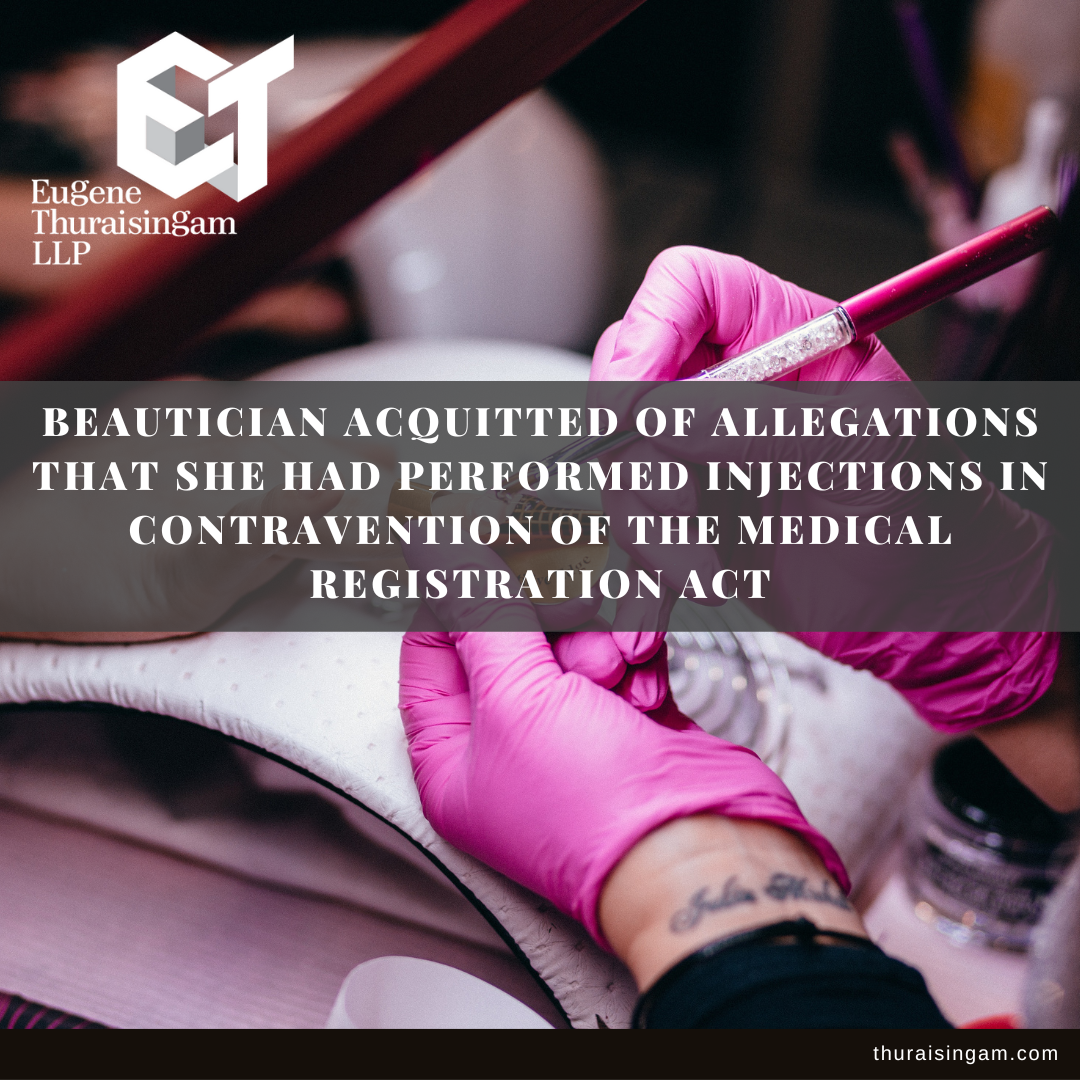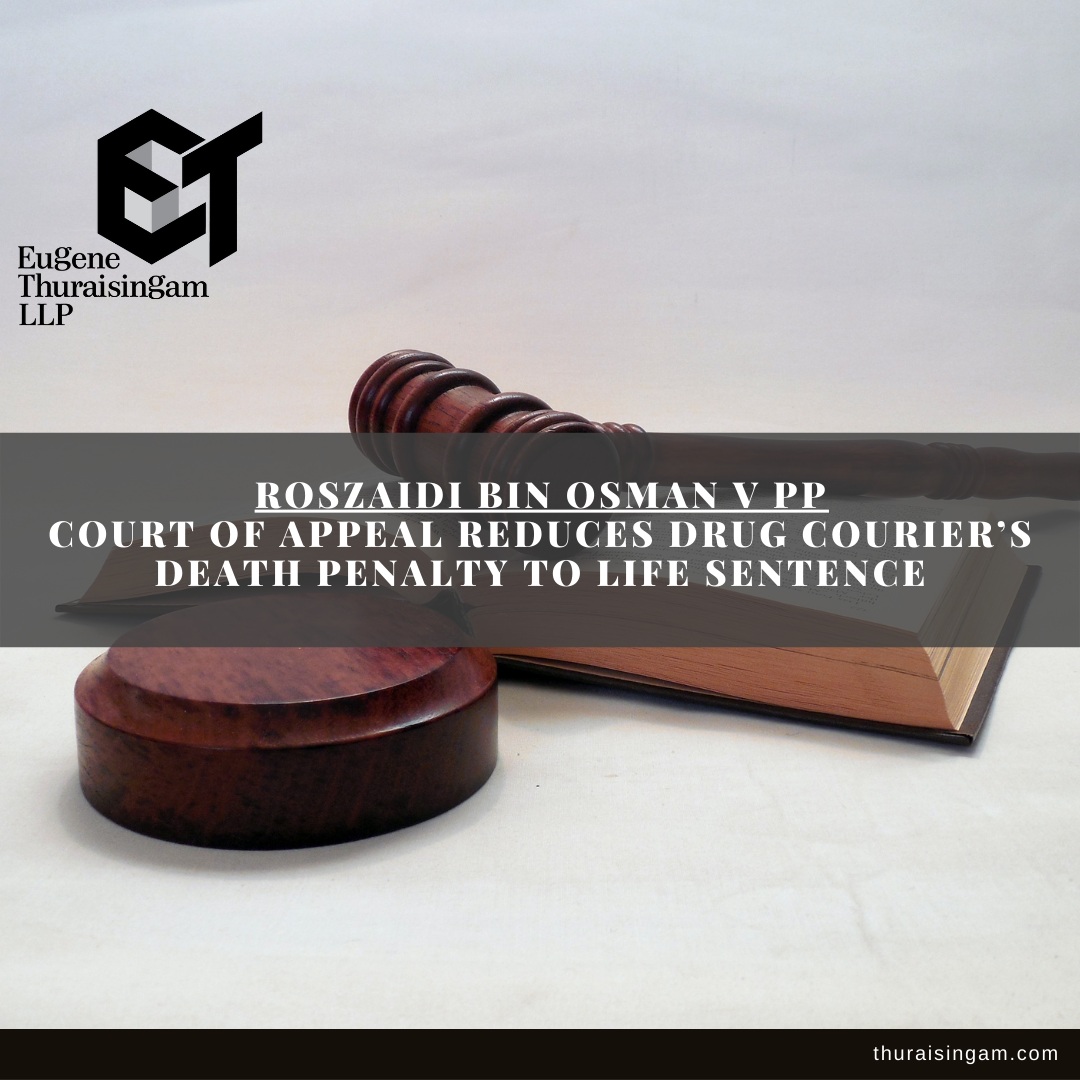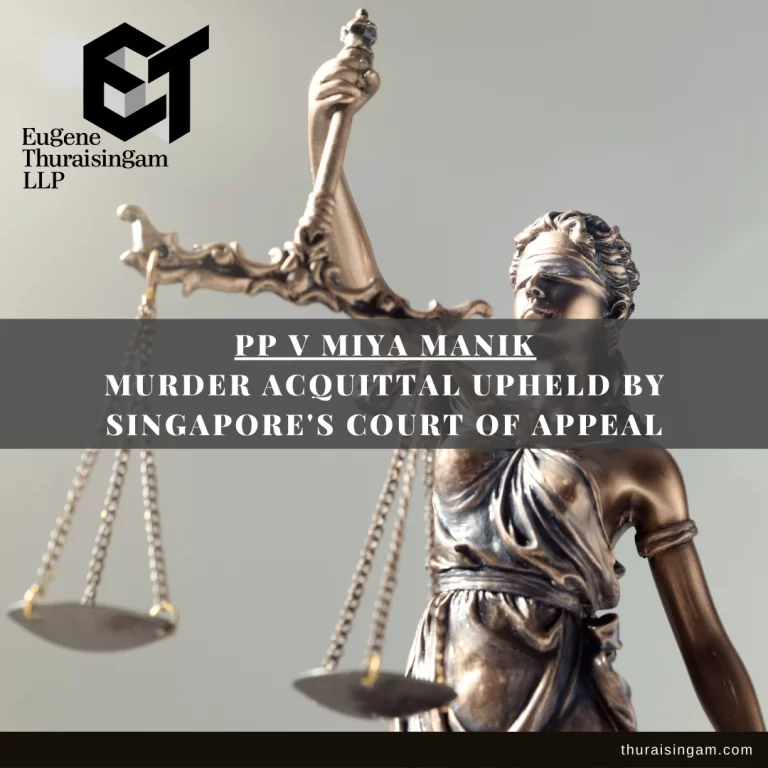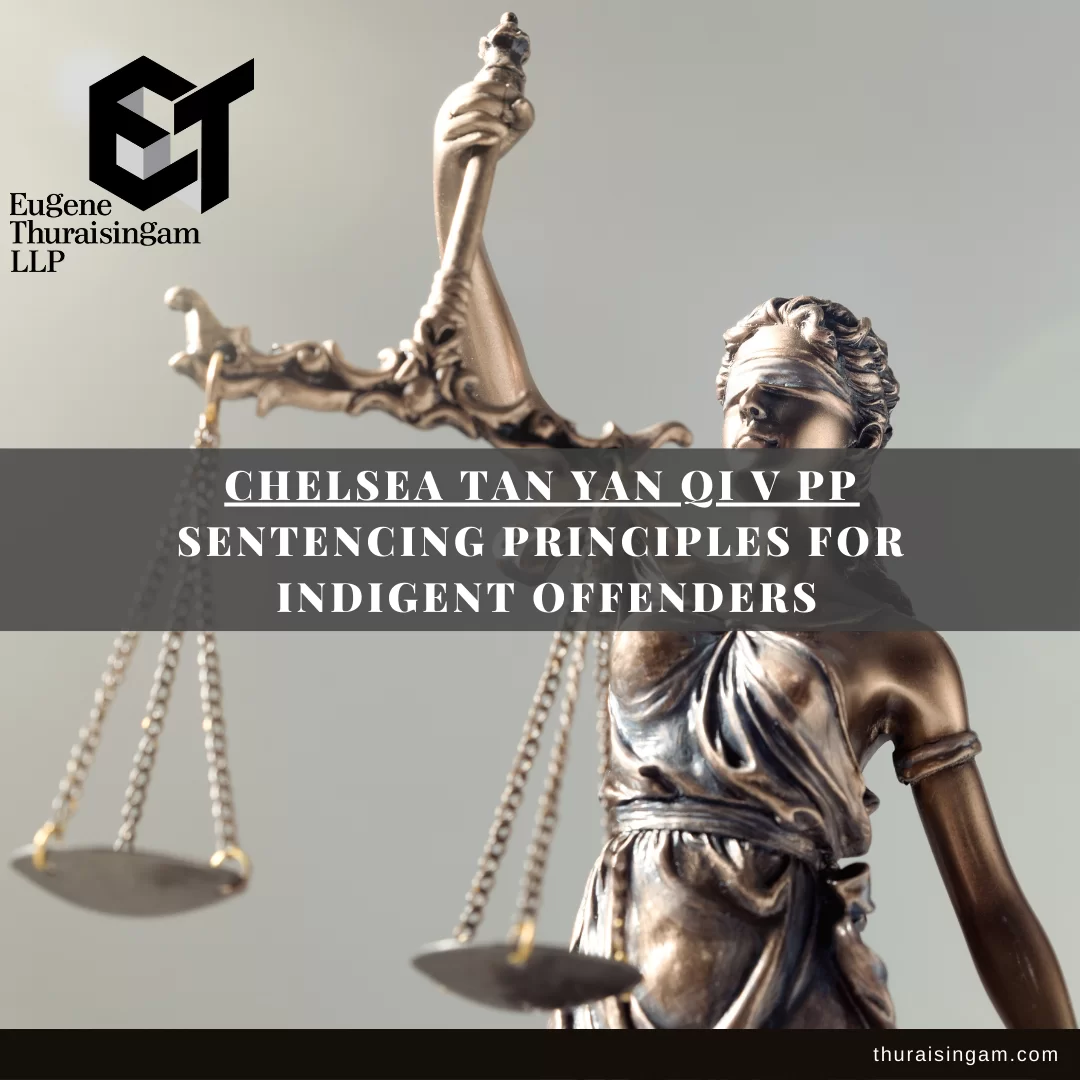Statutory Criminal Offence – Section 7 of the Misuse of Drugs Act
Nagaenthran a/l K Dharmalingam v Public Prosecutor and another appeal [2019] SGCA 37
1. Introduction
We acted for the appellant in Nagaenthran a/l K Dharmalingam v Attorney-General [2019] SGCA 37 (“Nagaenthran”). The appeal involved two significant questions of law, namely: what the definition of an “abnormality of mind” under Section 33B(3)(b) of the Misuse of Drugs Act (the “MDA”) should be, and whether the Public Prosecutor’s decision not to issue a certificate of substantive assistance under Section 33B(2)(b) of the MDA may be judicially reviewed on grounds other than bad faith or malice. The decision in Nagaenthran was handed down on Monday 27 May 2019.
2. Abnormality of Mind
Concerning the definition of “abnormality of mind” under Section 33B(3)(b), the Court of Appeal agreed with our argument that the interpretation of the term by English Court of Criminal Appeal in R v Byrne [1960] 2 QB 396 should be adopted. Further, the Court also noted that the term should encompass any state of mind “so different from that of ordinary human beings that the reasonable man would term it abnormal”, rather than be limited to abnormalities involving one’s capacity to understand events, judge the rightness or wrongness of one’s actions, or exercise self-control.
3. Issuance of Certificate of Substantive Assistance
Concerning the grounds on which the Public Prosecutor’s decisions under Section 33B(2)(b) of the MDA may be judicially reviewed, the Court of Appeal agreed with our argument that, had Section 33B(4) of the MDA purported to partially oust judicial review of the Public Prosecutor’s decision not to issue a certificate of substantive assistance, it would have been constitutionally suspect for being in violation of Article 93 of the Constitution as well as the principle of the separation of powers. These comments, however, were obiter, since the Court held that Section 33B(4) does not operate to oust judicial review at all, and only confers the Public Prosecutor an immunity from liability for his decisions made without bad faith or malice. On this basis, the Court agreed with our submission that, in this case, it was open to the Court to review the Public Prosecutor’s decision not to issue a certificate of substantive assistance on grounds other than bad faith, malice or unconstitutionality.






